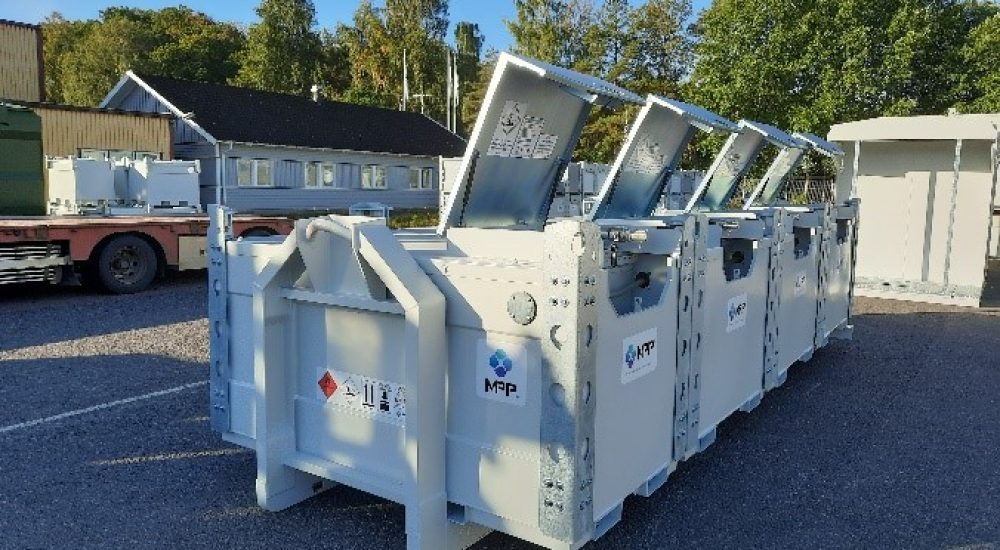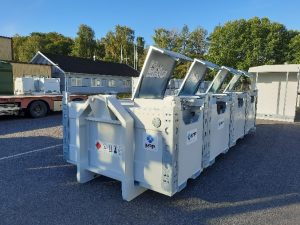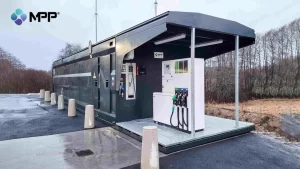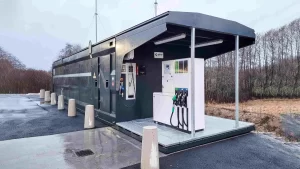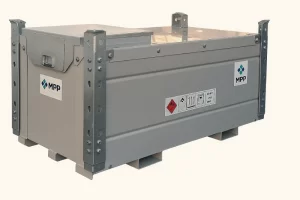Modern Farming Demands Smarter Fuel Solutions, Running a farm today is about more than just cultivating the land; it’s about efficiency, planning, and staying one step ahead. With today’s advanced machinery requiring more fuel than ever, fuel management has become a central part of daily operations. Many Swedish farmers have already discovered the benefits of owning a dedicated farm tank right on the property. It’s not just convenient – it may be one of the smartest and most profitable investments for your business. Here’s why.
What Is a Farm Tank?
A farm tank is a specially designed fuel storage tank built to meet the demanding needs of agriculture, forestry, and construction. Its main purpose is to safely store and efficiently distribute fuel – usually diesel – right where you need it: on the farm or at the job site. These tanks are built to withstand the harsh Swedish climate, typically made from durable plastic or steel, and are available in both stationary and mobile formats.
Many models come equipped with practical features like pumps, meters, hose reels, and overfill protection for added safety.
Unlike regular diesel tanks, farm tanks are tailored to meet the specific needs of farms. They are more durable, weather-resistant, and often flexible enough to relocate when necessary.
Key Benefits of Having Your Own Farm Tank
Save Time with On-Site Refueling
Avoid unnecessary trips to the gas station during peak seasons. With a farm tank, you can refuel machinery right on the property. It’s a major time-saver that lets you focus on the work that truly matters.
“We really notice it during harvest; refueling the excavator in the forest or the tractor in the field easily saves us an hour a day,” says a farmer from Småland.
Gain Better Control Over Fuel Costs
Buying fuel in bulk gives you stronger negotiating power. Instead of paying daily pump prices, you can purchase larger quantities directly from suppliers when rates are favorable. This allows better budget control and long-term planning.
Boost Operational Reliability and Reduce Downtime
Running out of fuel in the middle of a job is every farmer’s nightmare. With your own farm tank, you’re always prepared. You minimize unexpected downtime and the financial losses that can result.
Enjoy 24/7 Flexibility
Farming doesn’t stick to business hours. Your own fuel tank lets you refuel when it suits you – at dawn, late at night, or over the weekend. You’re no longer dependent on gas station opening hours.
Store Multiple Fuel Types Efficiently
As many farms transition to more sustainable fuels like HVO100, AdBlue, or biodiesel, having a tank that supports multiple fuel types becomes essential. The right farm tank allows for safe and efficient storage of various fuels, either in separate tanks or within a custom-built system.
Fuel Storage Safety and Regulations in Sweden
Know the ADR Transport Rules
If you plan to move your tank while it contains fuel, it must meet Sweden’s ADR regulations for transporting hazardous goods by road. Many modern tanks are already certified – but always confirm compliance.
Environmental Protection and Secondary Containment Requirements
Swedish law (especially under the Environmental Code) requires secondary containment for tanks above a certain volume (typically 1–3 m³) or tanks placed in sensitive areas like near water. These tanks must be double-walled or placed in a bund to capture any potential leaks.
For larger, stationary solutions, consider diesel cisterns specifically designed for secure long-term fuel storage.
Inspection and Maintenance Obligations
Depending on the tank’s size and type, regular inspections and checks may be required. Regulations can vary, and for installations containing hazardous materials (like fuel), requirements may come from the municipality or MSB. Be sure to stay informed about local regulations for your setup.
Frequently Asked Questions About Farm Tanks
Do I Need a Permit to Install a Farm Tank?
This depends on the tank’s size, location, and surrounding environment. Smaller, mobile tanks rarely need permits. Larger, stationary tanks or those in sensitive areas usually require notification to the local environmental authority. Always check with your municipality before installation.
What Size Farm Tank Should I Choose?
It depends on your fuel consumption and refueling frequency. A smaller farm may manage with 1,000–1,500 liters, while larger operations may need 3,000 liters or more. A good rule of thumb is to choose a tank that holds at least one month’s supply.
What Types of Fuel Can I Store?
Most farm tanks are designed for diesel, but tanks are also available for HVO100, AdBlue, and even gasoline. Ensure your tank is certified and approved for the specific fuel type you plan to store.
What If the Tank Leaks?
If you have a double-walled tank or bunded system, the risk of environmental damage is significantly reduced. According to Swedish law, you are responsible for cleaning up any spills. Investing in a certified, secure tank from the beginning is a wise decision.
How Long Does a Farm Tank Last?
A well-maintained farm tank can last 10–20 years or longer, depending on materials, location, and upkeep. Regular inspections and following the manufacturer’s maintenance guidelines are key to extending its life.
Conclusion: A Strategic Investment for Any Farm
Owning a farm tank isn’t just about convenience – it’s a strategic move that can elevate your farming operation. You’ll save time, cut fuel costs, and ensure uninterrupted access to fuel, improving both efficiency and profitability.
Want to know which farm tank is right for your business, or are you interested in complete solutions for fuel stations or mobile fuel tanks? Don’t hesitate to contact a specialist or your local environmental authority. Making the right choice today can save you both time and money in the future.

